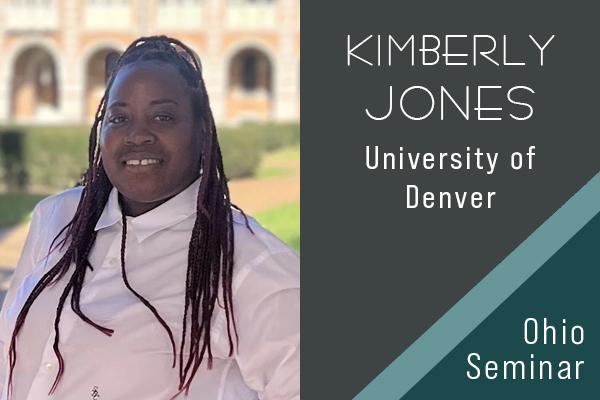
This is an Ohio Seminar in Early American History & Culture event.
Kimberly Jones is an Assistant Professor specializing in Black Diaspora in North America and/or African American History in the College of Arts, Humanities and Sciences at the University of Denver.
Abstract:
“Critical Bodies: Disability and Slavery in Early Republic Virginia” argues that disabled enslaved people were not disposed of in the economic system of slavery. Because enslaved people with disabilities were critical bodies in maintaining the wealth of enslavers, and thus the creation of the United States, their varying degrees of able-bodiedness, had to be lawfully considered. As such, white enslavers created laws and financial policies to account for their disabilities and continue to extract the labor of enslaved people with disabilities to maintain and enhance their wealth. This dissertation examines petitions to the Virginia legislature, coroner records, and narratives of formerly enslaved people to examine how enslavers and enslaved people navigated disabilities in and on enslaved people’s bodies and minds from 1778 until 1850.
“Critical Bodies” focuses on the life cycle of enslaved people and their encounters with enslavers and the law to define their disabilities within the complex and fluid interpretations of their bodies and abilities in Virginia. An analysis of enslaved peoples’ disabilities and enslavers’ responses enriches our understanding of gender, law, slavery, and capitalism by focusing on the appearance of disability that incorporates age, mental illness, and reproductive labor. “Critical Bodies” sheds light on the experiences of disabled enslaved people in Virginia and enriches scholarship on the relationships, institutions, and trauma created in slavery.
